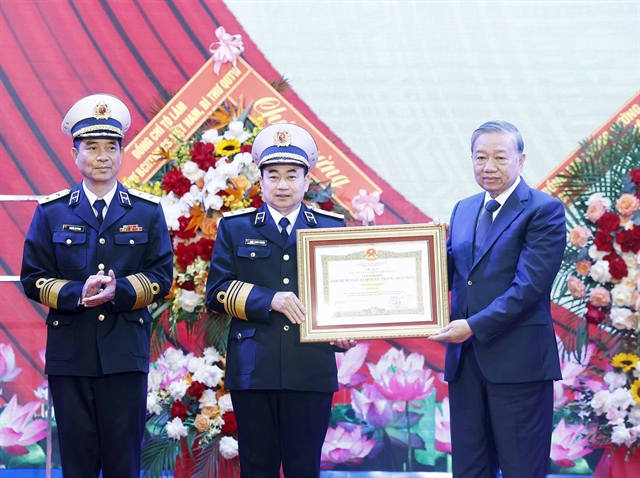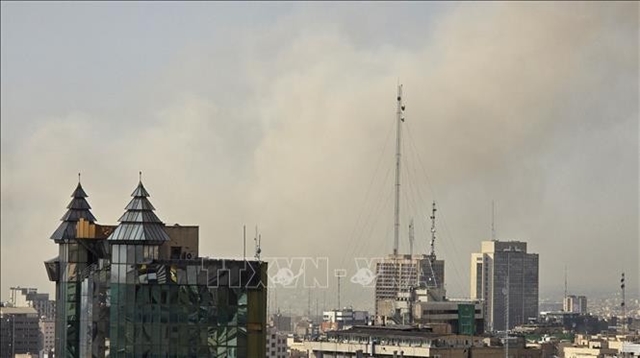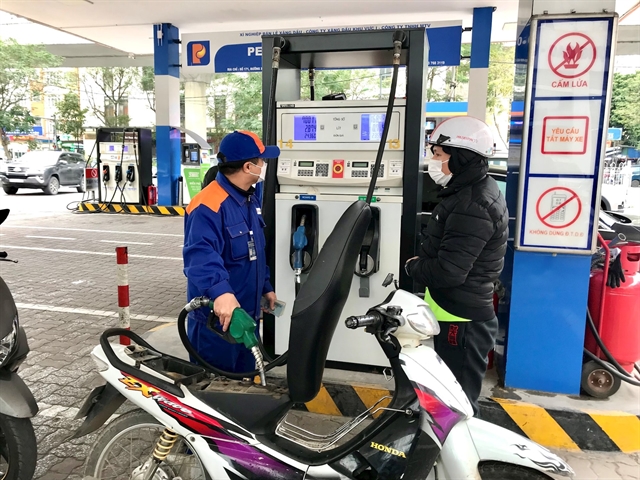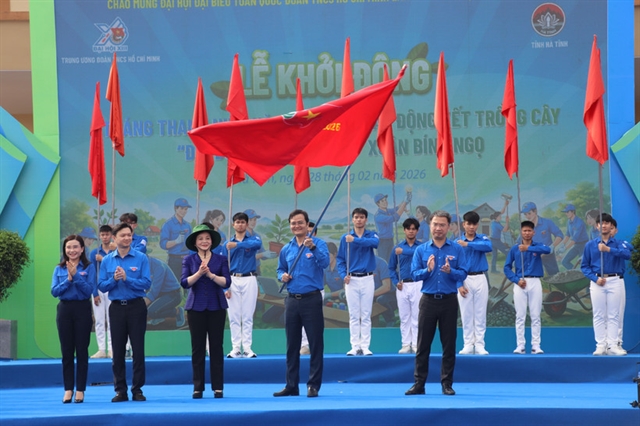 Society
Society

Female teachers in the northern mountainous province of Sơn La have overcome challenges and remained unwaveringly dedicated to teaching the region’s knowledge-thirsty ethnic minority children.
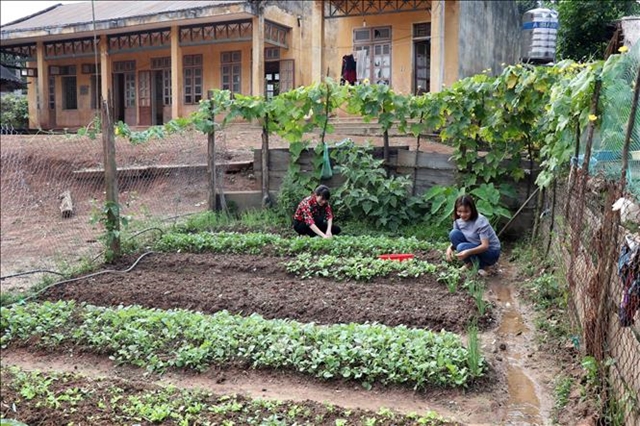
|
| Lò Thị Nga and Lò Thị Hiệp grow vegetables in front of the classroom for their meals. — VNA/VNS Photo |
SƠN LA — Female teachers in the northern mountainous province of Sơn La have overcome challenges and remained unwaveringly dedicated to teaching the region’s knowledge-thirsty ethnic minority children.
Being a mountainous province with people living in scattered regions, schools often have to be located in highland villages with difficult travel.
Due to such difficult terrain conditions, female teachers in upland areas often find it difficult to travel, but they aren't discouraged, said Thao A Senh, a resident in Thuận Châu District.
Every day, the teachers still go to school to teach their students.
Every Monday morning, Lò Thị Nga, a female teacher and her colleague get up at 4am and cook breakfast. They have to travel more than 20km from home to Huổi Pá Primary School, in Mường Lạn Commune, Sốp Cộp District. It is the most difficult dirt road in the region as it is winding and has many high slopes.
In the dry season, they spend two to three hours walking to the classroom, which is relatively straightforward. But during rainy days, to cross this road is very dangerous, Nga said.
“When it rains, the road is very slippery, the dirt on the wheels means I can't drive. I have to take all the soil off the wheel, then I drive and another pushes from behind,” she said.
“Not only that, there is a weak steering wheel and the road is slippery, so the teachers often fall down, it takes a day to arrive at school.
"Sometimes on rainy days, we take sticky rice prepared at home to school because we can't have breakfast in time. Sometimes the road is muddy, we have to leave the vehicle on the road to walk to school in time for teaching.
"The most miserable thing is that during prolonged rains, female teachers have to stay at school for months, while we don't have enough clothes or food," Nga said.
Two of the three teachers of Huổi Pá school are women.
Not only are the classroom facilities poor, but there is also no housing for teachers.
Nga and her colleague, Lò Thị Hiệp had to shelter temporarily in a 20sq.m room of the nearby kindergarten on rainy days. They can stay there for a week and only come home on weekends.
“There is no market near the school, so every time we go back home, we must prepare enough food for a week at school,” Hiệp said. "We have tried to fix it by growing some vegetables ourselves here”.
Situated unsteadily on the side of the slope, the classrooms are made from bamboo, while rough tree trunks substitute for tables and chairs and electricity has not yet been installed.
"Living and teaching here is very hard. We lack many things, but we have tried. For ethnic minority people, these classes are an important place where children start studying to change their lives," Hiệp said.
Lò Thị Cương, a teacher of Cống Village’s primary school, Mường Lạn Commune, said for children living in boarding schools, we are both teachers and caregivers.
"Working away from home has many disadvantages, we are mothers at home but we have not enough time to take care of our children.”
Quàng Văn Hồng, the headmaster of Mường Lạn Boarding School, said living and teaching at upland schools is very hard, especially for female teachers because they still have to take care of their families and children.
“The school tries to arrange work for female teachers. They will be assigned to work in lowland areas after one year working in an upland school,” Hồng said.
However, Nga and Hiệp agree that despite the difficulties and hardships, students are always the motivation for them to try.
“They are very friendly and have a lot of love for teachers,” Nga said. — VNS


